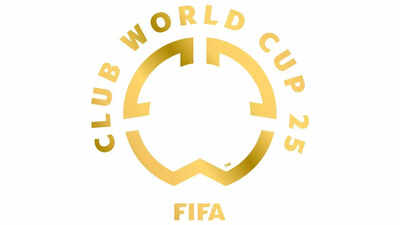
The
FIFA Club World Cup 2025
is set to be a landmark event in the world of football, marking a significant departure from its traditional format. Scheduled to take place in the United States from June 15 to July 13, 2025, the tournament will feature an expanded lineup of 32 teams for the first time, replacing the previous seven-team structure. This shift aims to create a more competitive and globally representative tournament, aligning it with the format of the prestigious FIFA World Cup. Here you can explore the new tournament format, participating teams, venues, ticket information, and live streaming options for fans worldwide.
How to watch the 2025 FIFA Club World Cup live
The tournament will be broadcast globally, with multiple platforms providing live coverage:
- DAZN App and Website (Global streaming rights)
- FIFA+
- YouTube TV
- TNT Sports
- TelevisaUnivision (For US viewers)
Fans worldwide can tune in to watch all 63 matches live, ensuring they don’t miss a moment of the action.
Where to buy FIFA Club World Cup 2025 tickets
Tickets for the 2025 FIFA Club World Cup are now available through various platforms, including:
- Ticketmaster
- SeatGeek
- Vivid Seats
- StubHub
Fans can also look for deals through platforms like Ticombo and SportsEvents365. Promotional codes, such as VARIETY10 for $10 off and VAR30 for $20 off at Vivid Seats, can help fans save on ticket purchases.
FIFA Club World Cup 2025 tournament new format
1. Expanded team lineupFor the first time, 32 clubs from six different football confederations will compete for the prestigious title. This expanded format is designed to bring more competitive balance and global representation to the tournament. The participating teams will include:
- 12 European clubs
- 6 South American clubs
- 4 North American clubs
- 4 African clubs
- 4 Asian clubs
- 2 Oceanian clubs
2. Group stage and knockout roundsThe tournament will kick off with a group stage, where the 32 teams will be divided into eight groups of four. The top two teams from each group will advance to the knockout stages, which include the Round of 16, quarter-finals, semi-finals, and the final. This structure mirrors the classic FIFA World Cup format, adding more high-stakes matches to the tournament.
FIFA Club World Cup 2025: Host cities and stadiums
The 2025 FIFA Club World Cup will be played across 12 stadiums in 11 U.S. cities, showcasing some of the most iconic sporting venues in the world. The final will be held at the MetLife Stadium in New Jersey, a venue known for hosting major NFL games and concerts. The full list of host stadiums includes:
- MetLife Stadium, New Jersey – Grand Finale
- Rose Bowl Stadium, Los Angeles, California
- Hard Rock Stadium, Miami, Florida
- Mercedes-Benz Stadium, Atlanta, Georgia
- Lincoln Financial Field, Philadelphia, Pennsylvania
- Lumen Field, Seattle, Washington
- GEODIS Park, Nashville, Tennessee
- Bank of America Stadium, Charlotte, North Carolina
- TQL Stadium, Cincinnati, Ohio
- Audi Field, Washington, D.C.
- Inter&Co Stadium and Camping World Stadium, Orlando, Florida
These venues have been selected for their world-class facilities and history of hosting major sporting events, ensuring a high-quality experience for players and fans alike.
Star players to watch in FIFA Club World Cup 2025
The tournament is expected to feature some of the biggest names in football, including global superstars like Lionel Messi, Kylian Mbappé, Jude Bellingham, and others. With teams like Manchester City and Chelsea already confirmed based on their UEFA Champions League performances from 2020 to 2024, fans can anticipate high-intensity matches filled with skill and drama.
A new era for the FIFA Club World Cup
The 2025 edition of the FIFA Club World Cup marks a bold transformation, reflecting the growing popularity of club football globally. This revamped version, held every four years, aims to provide a grander stage for the world’s top football clubs, akin to the FIFA World Cup. The tournament's timing has also been shifted from December to the summer, aligning it with the international football calendar and allowing for better player participation and fan engagement.












 English (US) ·
English (US) ·